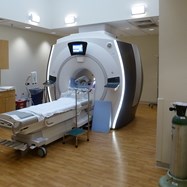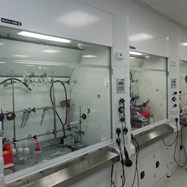MAC report on EEA migrants
18 September 2018
Responding to the Migration Advisory Committee (MAC) final report on EEA migration, Russell Group Chief Executive, Dr Tim Bradshaw said:
“The MAC’s report busts a series of pervasive migration myths, explaining that EEA migrants do not increase UK unemployment, drive down wages or impact negatively on the training of the domestic workforce. On the contrary, they pay more in taxes than they receive in benefits and make us more productive and innovative as a nation.
“However, the report is underwhelming in its recommendations for change once free movement ends, as the Government says it will from January 2021. Scrapping the Tier 2 visa cap and Resident Labour Market Test will not be enough to reduce the burden and bureaucracy of a system that is already at breaking point. This was a real opportunity to steer the UK towards a more modern and intelligent immigration system, but the recommendations are unimaginative and, we believe, unworkable.
“Unworkable because they heap further bureaucracy and cost onto the organisations that currently sponsor non-EEA migrants, such as businesses, universities, schools and charities, who have been clear throughout the MAC’s consultation on the already heavy burden they face. Under the MAC’s proposals, skilled EEA nationals would be required to wade through excessive red tape to come here, at precisely the time we should be making the UK even more attractive to international talent. Unimaginative because leaving the EU is a moment for fresh thinking and new policy ideas which will best serve the UK’s future interests. In this vein the Russell Group has proposed a European Skills Permit, based on a system of secure online accounts for future skilled EEA migrants, which builds on the digital platform already in development for the Government’s EU Settlement Scheme.
“Rather than stretching the existing immigration system past its limits through the inclusion of EEA migrants, we recommend a new and innovative arrangement which draws on technology and allows the dynamic flow of people and ideas needed to boost the UK’s knowledge economy.”
For further information on the Russell Group’s proposed European Skills Permit see here:
https://www.russellgroup.ac.uk/news/european-skills-permit/
- There are 26,500 staff from EU countries working at Russell group universities, representing 15% of the overall workforce, 23% of academics and 28% of staff on research-only contracts.
- Certain disciplines have a greater proportion of EU academic staff, including key STEM disciplines, such as engineering and maths, as well as modern languages, politics and international studies. These EU nationals are central both to the teaching and research excellence of these subjects.
- EU staff bring vital expertise and skills to the UK. 73% of EU staff at Russell Group universities hold a doctorate, post-graduate or other higher degree and this figure is higher for academic staff (87%).
- Over 6,500 EU staff at Russell Group universities are in non-academic roles. Many of these staff directly support teaching and research, holding posts such as assistant researchers and laboratory managers. Others provide important administrative and IT support.
-
Jessica Cole
jessica.cole@russellgroup.ac.uk
020 3816 1305
 X
X


